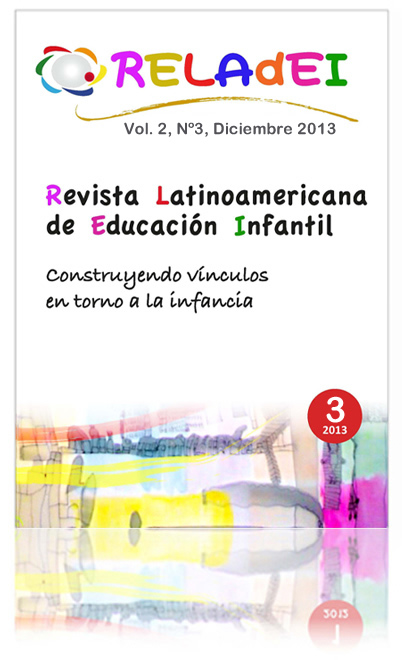Miradas de educadores y padres sobre la infancia actual
Contenido principal del artículo
Resumen
El presente artículo es el resultado de la investigación empírica: “Estudio de las connotaciones socio culturales, psicológicas y pedagógicas del concepto de infancia en la actualidad” realizada en la Universidad Nacional de Villa María, Córdoba, Argentina que focaliza en las representaciones sociales que docentes, padres y niños tienen sobre la infancia actual.
Los datos fueron recolectados a través de entrevistas realizadas a los adultos, y de historias de vida, narrativa documental y dibujos, en el caso de los niños y niñas. Las interpretaciones de los mismos da cuenta de que las representaciones de educadores y padres difieren entre sí en aspectos relevantes; los primeros, en su mayoría, sostienen una visión ingenua, nostálgica e idealizada de la infancia en la que conciben al niño y la niña como sujetos heterónomos (Aries, 1987) remontándose de esta manera a una conceptualización vinculada a la modernidad, pero estigmatizan al niño de hoy a partir de su vinculo con la tecnología. A diferencia de estos, los padres representan la infancia actual de una manera más realista, dan cuenta de nuevas maneras de vincularse con sus hijos concibiéndolos con mayor autonomía, y poniendo en tela de juicio la asimetría que existían entre ambos. Por otra parte, padres y maestros acuerdan que no es la infancia la que está en crisis, sino que la crisis es propia de los adultos al no asumir el rol que les corresponde como educadores y, junto al influjo de la tecnología y los medios de comunicación, generan cambios que subjetivan y configuran características singulares de “las nuevas infancias” del siglo XXI.
Palabras clave:
Detalles del artículo
Artículos más leídos del mismo autor/a(s)
- Maria Mercedes Civarolo Arpón, María Angélica Fuentes Torresi, ¿Es posible educar sin asimetría en la infancia? , RELAdEI. Revista Latinoamericana de Educación Infantil: Vol. 5 Núm. 4 (2016): Formación de profesores para la Educación Infantil


